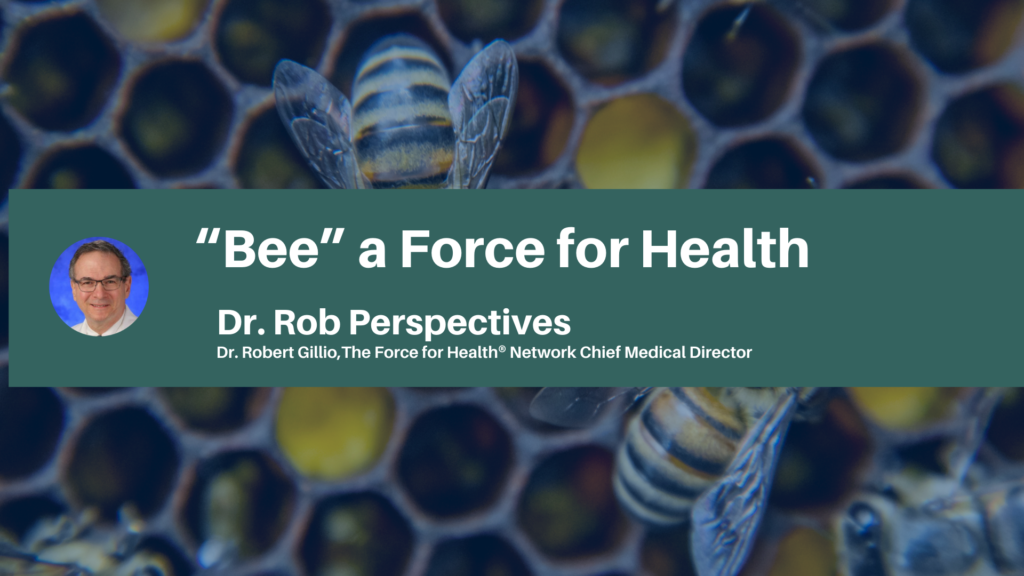
“Bee” a Force for Health

Imagine a bee, flying out alone in search of pollen. It lands on a flower, gathers what it can, and returns to the hive. That single bee, with its small contribution, is part of something much bigger—a collective effort that feeds and sustains the entire colony. This is how bees work, and in many ways, it mirrors the potential of individuals and small groups within The Force for Health Network. One person, one small group, can make a meaningful impact by addressing a social determinant of health, and when done together, the whole community thrives.
Bees don’t keep the pollen for themselves. They bring it back to the hive where it’s transformed into honey and wax, providing nourishment, structure, and security for the entire colony. Likewise, when an individual or a small group tackles a social determinant of health—whether it’s improving access to healthy food, transportation, education, or healthcare—they don’t just benefit themselves. Their efforts ripple through the community, creating stability, safety, and a healthier environment for all.
I believe it was Francis Bacon who once spoke about the power of small actions building to create a larger impact, much like the work of bees. While we may think that one bee gathering a few grains of pollen is insignificant, when you multiply that by hundreds or thousands of bees, their work becomes vital. In the same way, a single person improving a small aspect of life in their neighborhood can feel like a drop in the bucket. But in reality, that drop is part of a larger ocean of change.
It’s not just about the act itself; it’s about what it represents—hope, empowerment, and the idea that each of us has the capacity to create positive change.
Within The Force for Health Network, these individual or small group actions are tracked, celebrated, and rewarded through Reality Health Games, where members earn points for taking care of their health and the health of others. Just like bees, the contributions may seem small, but collectively, they are powerful.
Addressing social determinants of health doesn’t always require grand gestures. Sometimes it’s about showing up, taking small, deliberate steps, and contributing what you can. One person may help a neighbor access transportation for a medical appointment. Another might help a local school provide more nutritious meals. These small actions, when taken together, create a healthier, more resilient community.
Through collective action, like the bees, we transform small efforts into lasting change.
In the end, it’s not about being a hero for just yourself, but about being part of something bigger—like a bee in a hive, where every bit of pollen gathered, every small intervention made, contributes to the stability and well-being of the whole. Just as bees need their hive, we need each other to build strong, healthy communities.

